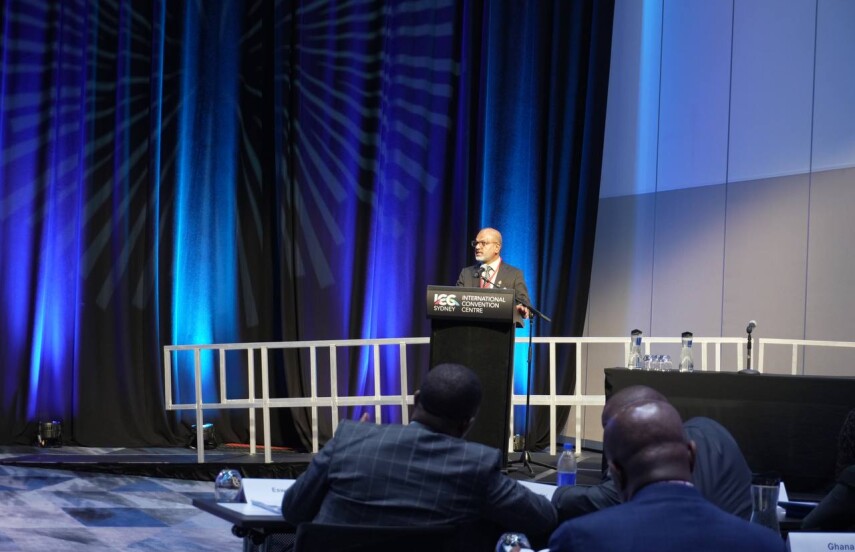Sydney, Australia – November 7, 2024
Hon. Ahmed Nazim, Deputy Speaker of the People’s Majlis, delivered a speech today at the 67th Commonwealth Parliamentary Conference being held in Sydney from 3 to 8 November 2024.
In his address, the Deputy Speaker Ahmed Nazim called for Unified Commonwealth Action Against Fake News and Synthetic Media.
Addressing the 67th Commonwealth Parliamentary Conference, Deputy Speaker Ahmed Nazim issued a forceful call for Commonwealth nations to adopt a united front against the dangers of misinformation, synthetic media, and fake news.
Speaking during a topical debate titled “Votes vs Likes: The Role of Parliament in Strengthening Democratic Resilience in an Age of Fake News and Synthetic Media,” Hon. Nazim outlined an urgent, multipronged approach to equip citizens to confront these threats to democracy.
“Fake news and synthetic media don’t just mislead; they actively erode trust in democratic institutions, threatening the very foundation of informed public discourse,” Hon.Nazim told the international audience.
Highlighting research showing that false information spreads six times faster than the truth on social media, he said the consequences go beyond individual deception, posing a significant risk to entire democratic processes.
To counter these dangers, Hon. Nazim urged the Commonwealth Parliamentary Association (CPA) to establish a working group to develop a media literacy curriculum. This curriculum, he proposed, should be adaptable across Commonwealth nations and tailored to different age groups, from primary school to higher education.
“We need a coordinated, Commonwealth-wide approach that will provide every citizen with critical skills in digital verification, synthetic media awareness, and responsible digital citizenship,” he said, underscoring that media literacy is now “a fundamental skill for the 21st century.”
Hon. Nazim also called for legislation across Commonwealth nations to make media literacy mandatory in schools, allocate funding for teacher training, and create oversight mechanisms to evaluate the effectiveness of these programs. Reflecting on a success in the Maldives, he proposed a “household information guardian” model in which students bring their media literacy skills home, creating community-wide awareness.
“Imagine a generation of citizens who instinctively question and verify the information they encounter, and who then help family members do the same,” he said.
Beyond media literacy, Hon. Nazim stressed that technological innovation must also be part of the solution. He highlighted the potential of artificial intelligence and blockchain technology to help verify the authenticity of online content, while cautioning that technology alone cannot safeguard democratic resilience.
“Our shared heritage and democratic tradition across 56 Commonwealth nations gives us not only the platform, but the moral imperative to act.” Hon. Nazim said.
He acknowledged Australia’s longstanding support of media and educational development in the Maldives, calling it “a model of Commonwealth cooperation,” and praised the bond between the two nations as a testament to the lasting impact of knowledge-sharing across Commonwealth members.
Hon. Nazim closed by calling on his colleagues to embrace their role as legislators in combatting misinformation, saying,
“The time for passive concern has passed. We must act to ensure our citizens can distinguish fact from fiction, upholding our shared commitment to democracy and free, informed public discourse.”
The 67th CPC, held from November 3 to 8 at Sydney’s International Convention Centre, convenes Commonwealth parliamentarians to discuss modern challenges to democratic institutions in a rapidly evolving digital world.
